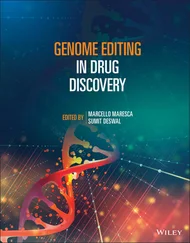Genome - Matt Ridley
Здесь есть возможность читать онлайн «Genome - Matt Ridley» — ознакомительный отрывок электронной книги совершенно бесплатно, а после прочтения отрывка купить полную версию. В некоторых случаях можно слушать аудио, скачать через торрент в формате fb2 и присутствует краткое содержание. Жанр: Старинная литература, на английском языке. Описание произведения, (предисловие) а так же отзывы посетителей доступны на портале библиотеки ЛибКат.
- Название:Matt Ridley
- Автор:
- Жанр:
- Год:неизвестен
- ISBN:нет данных
- Рейтинг книги:5 / 5. Голосов: 1
-
Избранное:Добавить в избранное
- Отзывы:
-
Ваша оценка:
- 100
- 1
- 2
- 3
- 4
- 5
Matt Ridley: краткое содержание, описание и аннотация
Предлагаем к чтению аннотацию, описание, краткое содержание или предисловие (зависит от того, что написал сам автор книги «Matt Ridley»). Если вы не нашли необходимую информацию о книге — напишите в комментариях, мы постараемся отыскать её.
Matt Ridley — читать онлайн ознакомительный отрывок
Ниже представлен текст книги, разбитый по страницам. Система сохранения места последней прочитанной страницы, позволяет с удобством читать онлайн бесплатно книгу «Matt Ridley», без необходимости каждый раз заново искать на чём Вы остановились. Поставьте закладку, и сможете в любой момент перейти на страницу, на которой закончили чтение.
Интервал:
Закладка:
it is none the less a paradox: in egalitarian societies, genes matter more.
These heritability estimates apply to the differences between individuals, not those between groups. IQ heritability does seem to be about the same in different populations or races, which might not have been the case. But it is logically false to conclude that because the difference between the IQ of one person and another is approximately fifty per cent heritable, that the difference between the average IQ s of blacks and whites or between whites and Asians is due to genes. Indeed, the implication is not only logically false, it so far looks empirically wrong, too. Thus does a large pillar of support for part of the thesis of the recent book The bell curve9
crumble. There are differences between the average IQ scores of blacks and whites, but there is no evidence that these differences are themselves heritable. Indeed, the evidence from cases of cross-racial adoption suggests that the average I Q s of blacks reared by and among whites is no different from that of whites.
If IQ is fifty per cent heritable individually, then some genes must influence it. But it is impossible to tell how many. The only thing one can say with certainty is that some of the genes that influence it are variable, that is to say they exist in different versions in different people. Heritability and determinism are very different things. It is entirely possible that the most important genes affecting intelligence are actually non-varying, in which case there would be no heritability for differences caused by those genes, because there would be no such differences For instance, I have five fingers on each hand and so do most people. The reason is that I inherited a genetic recipe that specified five fingers. Yet if I went around the world looking for people with four fingers, about ninety-five per cent of the people I found, possibly more, would be people who had lost fingers in accidents. I would find that having four fingers is something with very low heritability: it is nearly always caused by the environment. But that does not imply that genes had nothing to do with determining finger number. A gene can determine a feature of our bodies that is the same in different people just as surely as it can determine features that are different in different I N T E L L I G E N C E 8 7
people. Robert Plomin's gene-fishing expeditions for IQ genes will only find genes that come in different varieties, not genes that show no variation. They might therefore miss some important genes.
Plomin's first gene, the IGF2R gene on the long arm of chromosome 6, is at first sight an unlikely candidate for an 'intelligence gene'. Its main claim to fame before Plomin linked it with intelligence was that it was associated with liver cancer. It might have been called a 'liver-cancer gene', thus neatly demonstrating the foolishness of identifying genes by the diseases they cause. At some point we may have to decide if its cancer-suppressing function is its main task and its ability to influence intelligence a side-effect, or vice versa. In fact, they could both be side-effects. The function of the protein it encodes is mystifyingly dull: 'the intracellular trafficking of phosphorylated lysosomal enzymes from the Golgi complex and the cell surface to the lysosomes'. It is a molecular delivery van.
Not a word about speeding up brain waves.
IGF2R is an enormous gene, with 7,473 letters in all, but the sense-containing message is spread out over a 98,000-letter stretch of the genome, interrupted forty-eight times by nonsense sequences called introns (rather like one of those irritating magazine articles interrupted by forty-eight advertisements). There are repetitive stretches in the middle of the gene that are inclined to vary in length, perhaps affecting the difference between one person's intelligence and another. Since it seems to be a gene vaguely connected with insulin-like proteins and the burning of sugar, it is perhaps relevant that another study has found that people with high I Q s are more
'efficient' at using glucose in their brains. While learning to play the computer game called Tetris, high-I Q people show a greater fall in their glucose consumption as they get more practised than do low-IQ people. But this is to clutch at straws. Plomin's gene, if it proves real at all, will be one of many that can influence intelligence in many different ways.10
The chief value of Plomin's discovery lies in the fact that, while people may still dismiss the studies of twins and adoptees as too indirect to prove the existence of genetic influences on intelligence, 8 8 G E N O M E
they cannot argue with a direct study of a gene that co-varies with intelligence. One form of the gene is about twice as common in the superintelligent Iowan children as in the rest of the population, a result extremely unlikely to be accidental. But its effect must be small: this version of the gene can only add four points to your I Q , on average. It is emphatically not a 'genius gene'. Plomin hints at up to ten more 'intelligence genes' to come from his Iowa brainboxes. Yet the return of heritable IQ to scientific respectability is greeted with dismay in many quarters. It raises the spectre of eugenic abuse that so disfigured science in the 1920s and 1930s. As Stephen Jay Gould, a severe critic of excessive hereditarianism, has put it: 'A partially inherited low IQ might be subject to extensive improvement through proper education. And it might not. The mere fact of its heritability permits no conclusion.' Indeed. But that is exactly the trouble. It is by no means inevitable that people will react to genetic evidence with fatalism. The discovery of genetic mutations behind conditions like dyslexia has not led teachers to abandon such conditions as incurable - quite the reverse; it has encouraged them to single out dyslexic children for special teaching.11
Indeed, the most famous pioneer of intelligence testing, the Frenchman Alfred Binet, argued fervently that its purpose was not to reward gifted children but to give special attention to less gifted ones. Plomin cites himself as a perfect example of the system at work. As the only one of thirty-two cousins from a large family in Chicago to go to college, he credits his fortune to good results on an intelligence test, which persuaded his parents to send him to a more academic school. America's fondness for such tests is in remarkable contrast to Britain's horror of them. The short-lived and notorious eleven-plus exam, predicated on probably-faked data produced by Cyril Burt, was Britain's only mandatory intelligence test. Whereas in Britain the eleven-plus is remembered as a disastrous device that condemned perfectly intelligent children to second-rate schools, in meritocratic America similar tests are the passports to academic success for the gifted but impoverished.
Perhaps the heritability of IQ implies something entirely different, I N T E L L I G E N C E 8 9
something that once and for all proves that Galton's attempt to discriminate between nature and nurture is misconceived. Consider this apparently fatuous fact. People with high I Q s , on average, have more symmetrical ears than people with low I Q s . Their whole bodies seem to be more symmetrical: foot breadth, ankle breadth, finger length, wrist breadth and elbow breadth each correlates with I Q .
In the early 1990s there was revived an old interest in bodily symmetry, because of what it can reveal about the body's development during early life. Some asymmetries in the body are consistent: the heart is on the left side of the chest, for example, in most people.
But other, smaller asymmetries can go randomly in either direction.
In some people the left ear is larger than the right; in others, vice versa. The magnitude of this so-called fluctuating asymmetry is a sensitive measure of how much stress the body was under when developing, stress from infections, toxins or poor nutrition. The fact that people with high I Q s have more symmetrical bodies suggests that they were subject to fewer developmental stresses in the womb or in childhood. Or rather, that they were more resistant to such stresses. And the resistance may well be heritable. So the heritability of IQ might not be caused by direct 'genes for intelligence' at all, but by indirect genes for resistance to toxins or infections — genes in other words that work by interacting with the environment. You inherit not your IQ but your ability to develop a high IQ under certain environmental circumstances. How does one parcel that one into nature and nurture? It is frankly impossible.12
Читать дальшеИнтервал:
Закладка:
Похожие книги на «Matt Ridley»
Представляем Вашему вниманию похожие книги на «Matt Ridley» списком для выбора. Мы отобрали схожую по названию и смыслу литературу в надежде предоставить читателям больше вариантов отыскать новые, интересные, ещё непрочитанные произведения.
Обсуждение, отзывы о книге «Matt Ridley» и просто собственные мнения читателей. Оставьте ваши комментарии, напишите, что Вы думаете о произведении, его смысле или главных героях. Укажите что конкретно понравилось, а что нет, и почему Вы так считаете.












